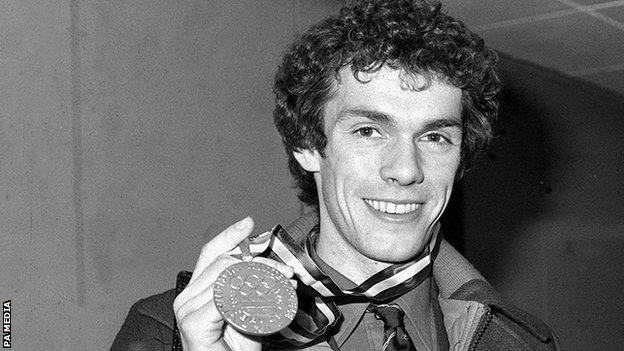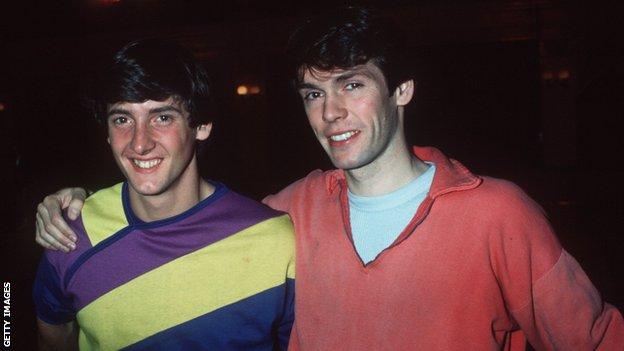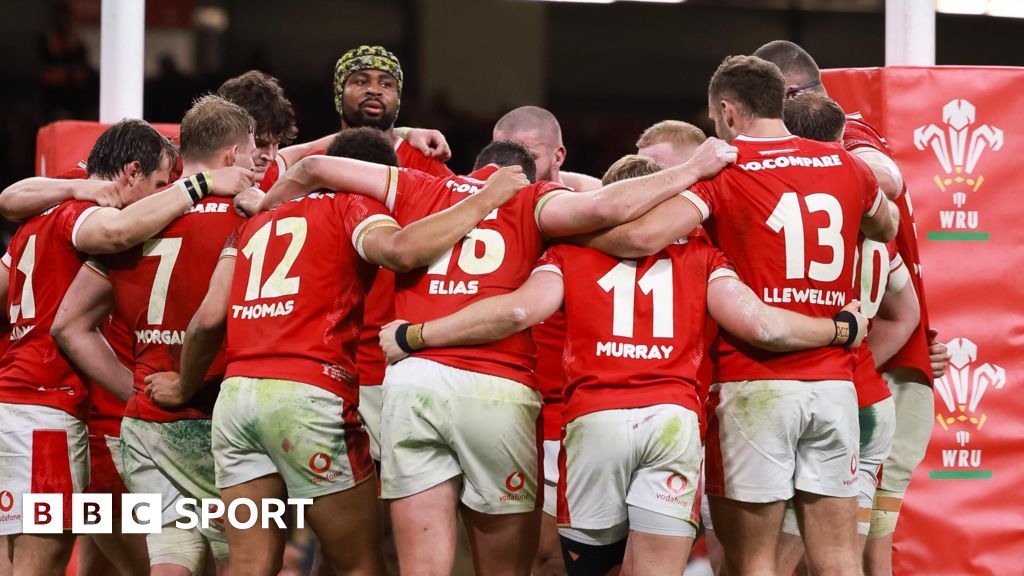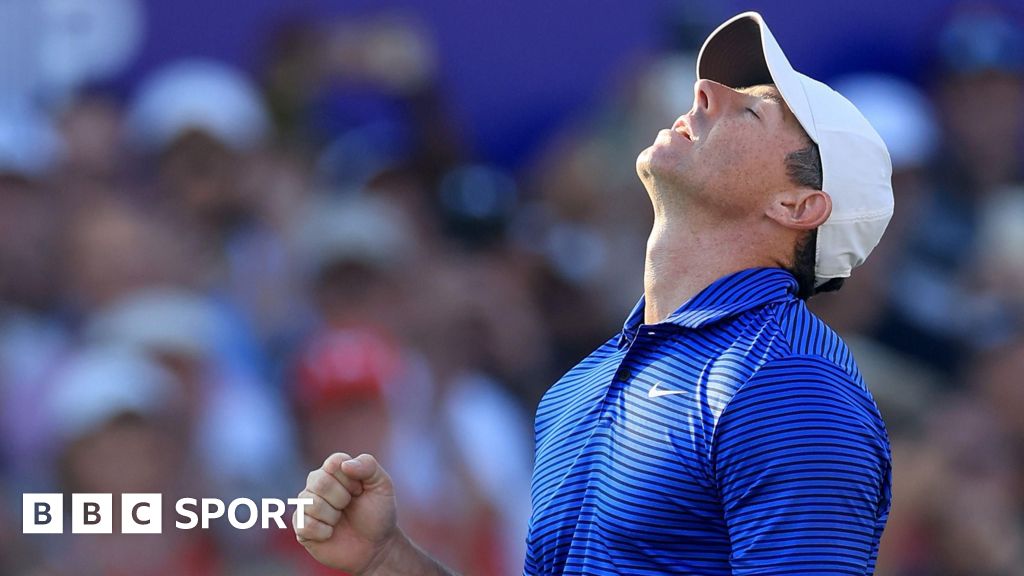ARTICLE AD BOX
John Curry was an icon, a trailblazer and one of the greatest figure skaters of all time.
His elegant, balletic style revolutionised a sport he came to dominate in 1976, when he won the Olympic, world, European and British titles.
Shortly after his Olympic victory, Curry was outed as gay, making him one of the most high-profile LGBT sportspeople of his time.
Curry, who died of an AIDS-related heart attack aged 44 in 1994, remains an inspiration to the LGBT+ community today.
As part of LGBT history month, BBC Sport looks at how Curry changed his sport and his ongoing impact, through his words and those of athletes he inspired.
The revolutionary
Birmingham-born Curry wanted to take ballet lessons when he was young, but was stopped from doing so by his father, so he turned to ice skating.
"Ice skating is protected by the umbrella of sport, so it was quite acceptable," he said.
He developed a unique style, incorporating elements of ballet and modern dance together with technical excellence and prodigious natural talent - later teaching himself how to do a triple loop jump.
But what was encouraged as a boy, was met with hostility as a man, with Curry's style challenging gender norms.
"I was told I shouldn't use my arms, I shouldn't do spirals, I shouldn't try and make everything look so effortless and graceful," he said.
"I was actually told not to be so graceful."
American skater Adam Rippon, who won team bronze at the 2018 Winter Olympics, said Curry's skating was "so beautiful, so pure" and "unlike anything I had ever seen before".
"It was the first time I saw somebody who skated like a man, but they could also skate like a beautiful woman," he added.
Robin Cousins, who followed Curry as Olympic champion in 1980, said his contemporary had an exceptional blend of skills.
"You could use his footwork, his choreography, his style, his jumping technique, his spinning technique, all as teaching tools - that doesn't happen very often," he said.
Despite an initial mixed reception from judges, Curry "kept plugging away" as he put it, determined to overhaul the sport.
"I always wanted to be able to present skating in a way I had not seen before," said Curry.
"And I realised the only way I would have the opportunity to do that was by proving myself in the most visible and accepted way, which was by winning the Olympics."
Curry achieved that at the 1976 Winter Games in Innsbruck, becoming the first British man to win Olympic figure skating gold.
 John Curry won Olympic gold with the highest score awarded during the 6.0 scoring system era
John Curry won Olympic gold with the highest score awarded during the 6.0 scoring system eraThe LGBT+ icon
Leading up to the Olympic final, Curry was interviewed by Associated Press journalist John Vinocur and disclosed his sexuality in those conversations.
Curry was outed when the article was published shortly after his Olympic victory. Curry claimed the disclosure was off the record and he had been "conned" by Vinocur, who defended the piece by saying "there was no expectation of copy approval".
Curry was questioned about his sexuality in a press conference, during which Daily Mail sportswriter Ian Wooldridge said he gave "his second stunning performance in 19 hours", though Curry was hurt by the ordeal.
"A lot of people said I came out at the Olympics, but I didn't - I never intentionally set out to make a statement," he said.
Dancing on Ice star Matt Evers, who won US championships as a junior, said he "couldn't imagine" the pressure Curry was under during that Olympic final knowing he could be outed.
"All of the Olympic glory about the sport was taken away from him because it became about the fact that he was a gay athlete," said Evers.
Rippon, who publicly came out in 2015 and was the USA's first openly gay athlete to win a Winter Olympics medal, said he "can't imagine how afraid" Curry must have felt.
Canada's Eric Radford, who publicly came out as gay in 2014 and won Olympic team gold in 2018, said: "It's just awful, that he was outed like that.
"But it wasn't for nothing - his story, despite it not being told on his terms, still resonates and still inspires.
"There were seven out athletes at Sochi 2014, 16 at Pyeongchang 2018 and over 35 at Beijing 2022 - it's growing exponentially and we needed those trailblazers like John Curry."
Cousins said Curry coped with the scrutiny "extremely well" and showed an admirable refusal to compromise.
He said: "It didn't change who he was as a person and it certainly didn't change who he was going to be as a performer, he made that very clear."
Curry was diagnosed with HIV in 1987 and with AIDS in 1991, spending his final years back in the West Midlands with his mother Rita.
The enduring influence
 Britain's Robin Cousins and John Curry won back-to-back Olympic figure skating titles
Britain's Robin Cousins and John Curry won back-to-back Olympic figure skating titlesCurry was named BBC Sports Personality of the Year in 1976 and was also made an OBE.
Following his victory at the World Championships, he did what we had dreamt of all his life and turned professional, starting the John Curry Theatre of Skating - essentially ballet on ice.
Curry had previously said he competed "in order to have the opportunity to do what I did later".
He and his skaters performed at famous venues like the Albert Hall in London and the Met in New York, and in front of celebrities including singer Diana Ross.
"It brought skating to a new era and really changed the sport on a professional level," said Evers.
The enduring influence of Curry is evident from TV shows like Dancing on Ice to the pinnacle of the elite sport.
"I find it very hard to think that our sport would be where it is now without John Curry," said Cousins.
"His legacy is embedded in a lot of figure skating that we see now across all disciplines."
Radford added: "He moved in a way I'd never seen another male figure skater move. That classical style of skating still permeates the sport today."
Rippon said: "Every time I doubt myself, I think back to John Curry, what he did and how different it was."

 2 years ago
60
2 years ago
60








 English (US)
English (US)